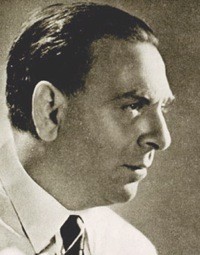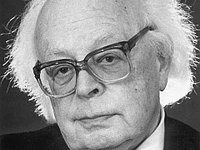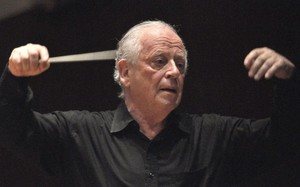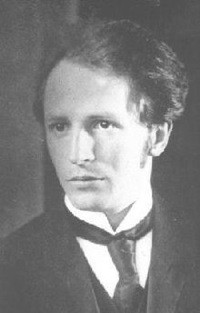
George Sebastian |
George Sebastian

French conductor of Hungarian origin. Many older music lovers remember Georg Sebastian well from his performances in the USSR in the thirties. For six years (1931-1937) he worked in our country, conducted the orchestra of the All-Union Radio, gave many concerts, staged operas in concert performance. Muscovites remember Fidelio, Don Giovanni, The Magic Flute, The Abduction from the Seraglio, The Marriage of Figaro under his direction. Khrennikov and the First Suite “Romeo and Juliet” by S. Prokofiev.
At that time, Sebastian captivated with the passion that was transmitted to the musicians, the ardent dynamism, the electrification of his interpretations, and the inspirational impulse. These were the years when the musician’s artistic style was just being formed, although he already had a considerable period of independent work behind him.
Sebastian was born in Budapest and graduated from the Academy of Music here in 1921 as a composer and pianist; his mentors were B. Bartok, 3. Kodai, L. Weiner. However, the composition did not become the vocation of the musician, he was fascinated by conducting; he went to Munich, where he took lessons from Bruno Walter, whom he calls his “great teacher”, and became his assistant at the opera house. Then Sebastian visited New York, worked at the Metropolitan Opera as an assistant conductor, and returning to Europe, he stood at the opera house – first in Hamburg (1924-1925), then in Leipzig (1925-1927) and, finally, in Berlin (1927-1931). Then the conductor went to Soviet Russia, where he worked for six years …
By the end of the thirties, numerous tours had already brought fame to Sebastian. In the future, the artist worked for a long time in the United States, and in 1940-1945 he headed the Pennsylvania Symphony Orchestra. In 1946 he returned to Europe and settled in Paris, becoming one of the leading conductors of the Grand Opera and Opera Comic. Sebastian still tours a lot, performing in almost all the musical centers of the continent. In the post-war years, he gained fame as a brilliant interpreter of the works of the Romantics, as well as French opera and symphony music. A significant place in his activity is occupied by the performance of works of Russian music, both symphonic and operatic. In Paris, under his direction, Eugene Onegin, The Queen of Spades and other Russian operas were staged. At the same time, the conductor’s repertory range is very wide and covers a huge number of major symphonic works, mainly by composers of the XNUMXth century.
In the early sixties, Sebastian’s tours again brought him to the USSR. The conductor performed with great success in Moscow and other cities. His knowledge of the Russian language helped him in his work with the orchestra. “We recognized the former Sebastian,” the critic wrote, “talented, in love with music, ardent, temperamental, moments to complete self-forgetfulness, and along with this (partly for this very reason) – unbalanced and nervous.” Reviewers noted that Sebastian’s art, without losing its freshness, became deeper and more perfect over the years, and this allowed him to win new admirers in our country.
L. Grigoriev, J. Platek, 1969





